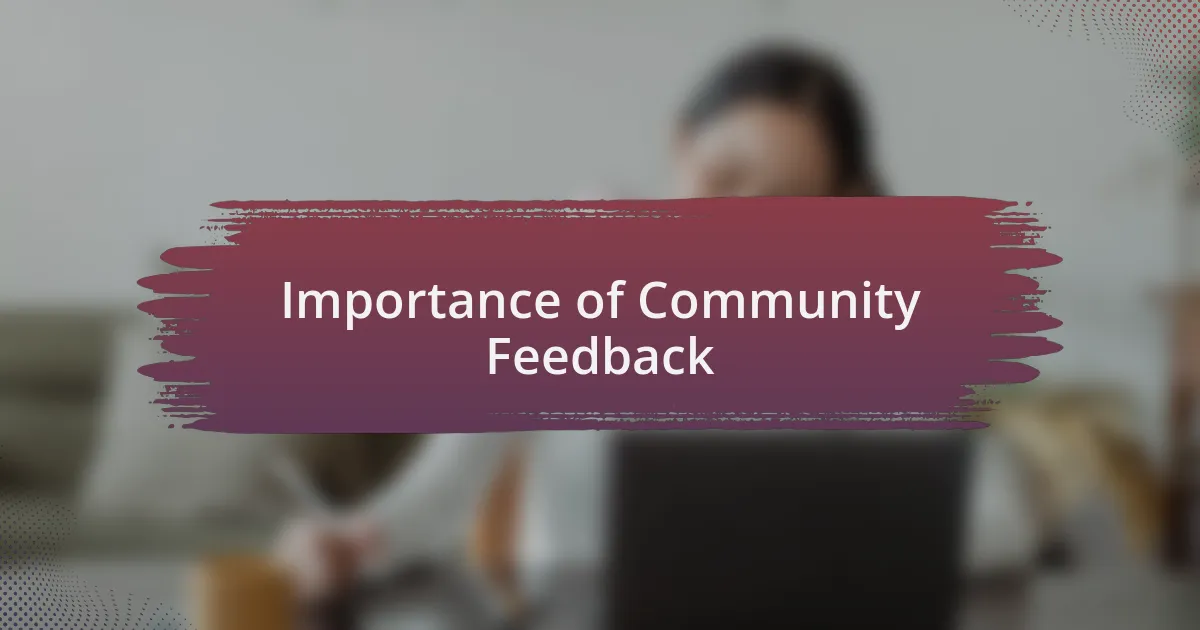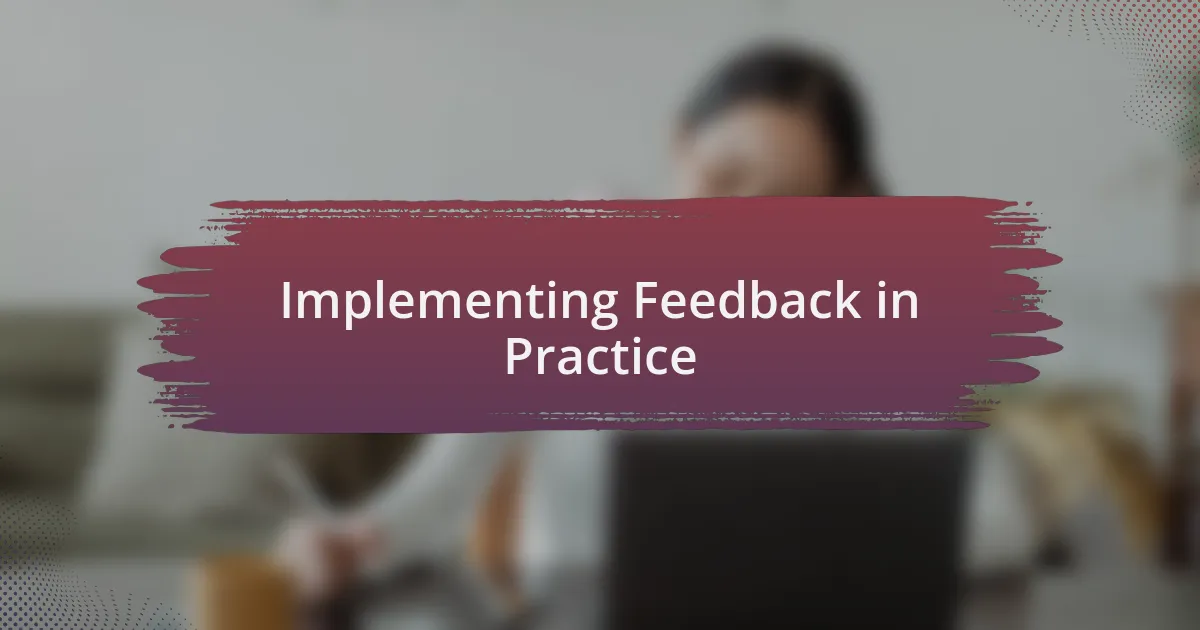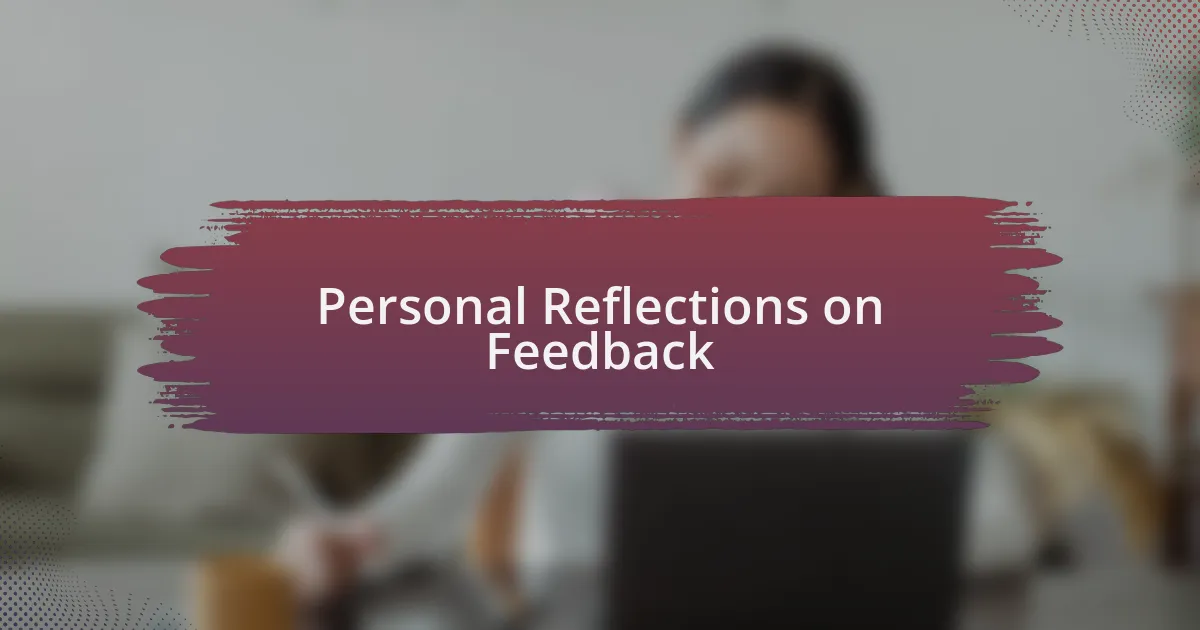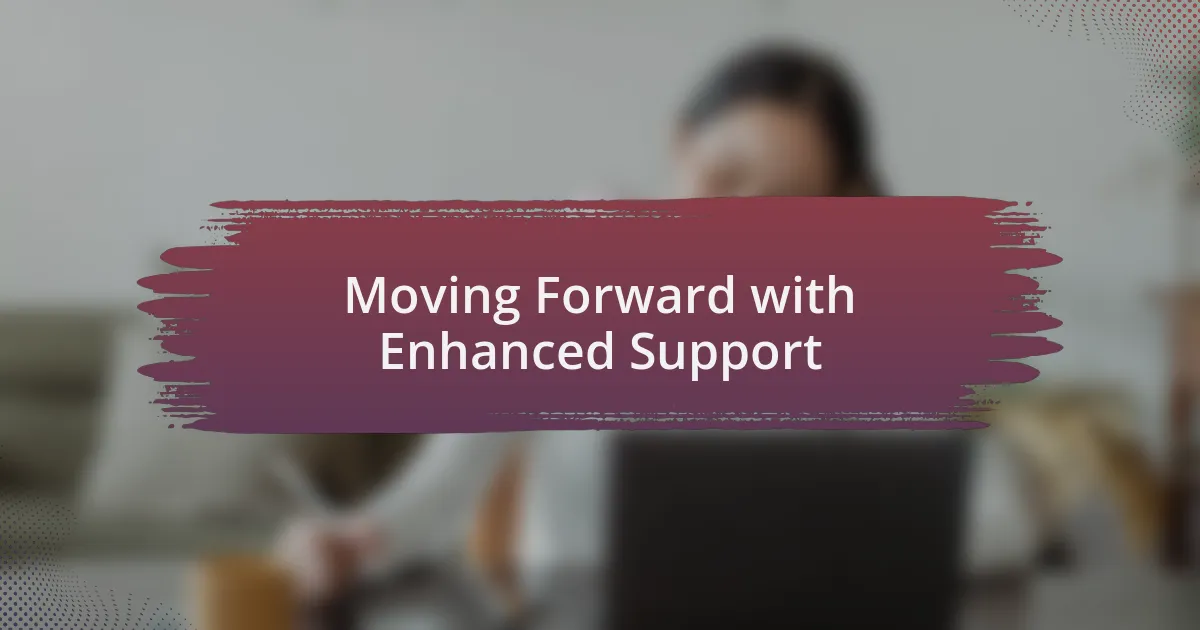Key takeaways:
- Community feedback is crucial for improving abuse trauma support systems, as it helps identify collective needs and drives meaningful change.
- Creating a safe space for sharing experiences fosters vulnerability and openness, leading to deeper connections among survivors.
- Effective implementation of feedback requires transparency and adaptability, ensuring that community contributions are valued and translated into actionable steps.
- Celebrating small victories and embracing diverse perspectives strengthen the community, enhancing resilience and empathy among its members.

Understanding Abuse Trauma Support
Abuse trauma support is rooted in a deep understanding of the complex emotions that survivors face. I remember speaking with a friend who struggled to voice her experience; she told me how isolating it felt to carry the weight of her trauma alone. It made me realize that acknowledging the emotional turmoil is often the first step toward healing.
There’s a profound power in community when it comes to abuse trauma support. When people share their stories, it creates a safe space where others can feel heard and validated. I often find myself reflecting on how these shared experiences resonate—why do we feel stronger together, uncovering truths that might otherwise remain hidden?
Additionally, effective support goes beyond just listening; it requires an empathetic approach that respects each survivor’s unique journey. I often see individuals stepping into their own power through counseling and peer support groups. This process of sharing and healing can ignite a sense of hope for those who might feel lost, showing them that they are not alone in their struggle.

Importance of Community Feedback
Community feedback is essential in shaping effective abuse trauma support systems. When I reflect on discussions in support groups, I often recall the way shared insights transformed our understanding of specific challenges. Hearing differing perspectives not only deepened my empathy but also highlighted the collective needs that might otherwise go unnoticed.
I’ve come to appreciate how community feedback can drive change. I once witnessed a local organization revise its approach after hearing directly from survivors. Their willingness to adapt based on real experiences demonstrated that this feedback loop is not just beneficial; it’s crucial for meaningful support.
Moreover, engaging with community feedback fosters a sense of belonging among survivors. I vividly remember a participant sharing how she felt more empowered after voicing her concerns during a feedback session. This affirmation sparked conversations that brought forth healing strategies tailored to our unique experiences. Isn’t it incredible how simply listening can lead to profound transformations?

Key Insights from Feedback
Key insights from feedback reveal the diverse emotional landscapes that survivors navigate. I recall an instance when one participant shared how her feedback about the need for more accessible resources profoundly resonated with others in the group. It made me realize how often our individual struggles mirror those of others, creating a shared sense of urgency for change.
Listening to the community has also illuminated the importance of creating a safe space for expression. I remember feeling a palpable shift in the room during a feedback session when someone spoke about their journey of healing. The vulnerability displayed invited others to open up, leading to insights about the need for more supportive interactions within our forums. Have you ever experienced that moment when silence speaks louder than words?
One major takeaway has been the value of ongoing dialogue. After gathering insights, I engaged in follow-up discussions with several members, which sparked ideas for workshops that tackled specific needs. This iterative process not only strengthens our support system but fosters continuous improvement. Isn’t it fascinating how each conversation can lay the groundwork for a more responsive framework?

Implementing Feedback in Practice
Implementing feedback in practice requires a conscious effort to translate insights into actionable steps. I once collaborated with a team to refine our resources based on suggestions from our community. The process was eye-opening; seeing how quickly we could adapt our materials made me appreciate the power of community input. Have you ever felt the rush of excitement when a change you proposed leads to immediate positive feedback?
We also learned to prioritize transparency in our implementation process. When I shared our action plan with the community, acknowledging their contributions made them feel valued and empowered. I can’t describe the satisfaction I felt when members expressed pride in their impact, reinforcing the idea that collaboration is key in creating a supportive environment. Doesn’t that sense of ownership make all the difference?
Furthermore, I discovered that not all feedback is straightforward, and that’s part of the journey. There were moments when suggestions conflicted or seemed impractical, but I approached these challenges as opportunities for deeper discussions. For instance, one member suggested incorporating art therapy, which sparked a lively debate that ultimately led to a new program. Embracing such complexity taught me that navigating different perspectives can lead to richer, more effective solutions. How can we turn challenges into creative breakthroughs together?

Personal Reflections on Feedback
Reflecting on the feedback I’ve received has often left me feeling humbled and inspired. There was a time when a community member shared their story about how a small adjustment in our resources significantly impacted their journey. Hearing their heartfelt gratitude gave me a renewed sense of purpose; it was a potent reminder that even minor changes can resonate deeply with individuals. Have you ever paused to consider how your actions ripple outwards, affecting others in unexpected ways?
In my journey, I’ve also encountered moments of vulnerability when feedback hasn’t been entirely positive. One instance that stands out involved criticism about the accessibility of our materials. Initially, it stung to hear, but I realized that such insights offered a pathway toward inclusivity. This experience was a turning point, teaching me to embrace constructive criticism as a crucial part of growth. How often do we allow ourselves to transform discomfort into constructive action?
Moreover, feedback isn’t just about listening—it’s about creating meaningful conversations. I once facilitated a small group discussion where members could air their views on our support services. The energy in the room was electric; it felt like we were co-creating a vision together. That powerful exchange underscored the importance of dialogue in fostering trust and understanding. Doesn’t that sense of shared ownership foster a stronger community?

Building a Supportive Community
Building a Supportive Community
Creating a supportive community is about laying down the foundations of trust and openness. I remember hosting a virtual support session where members shared their fears and aspirations. The openness that emerged felt transformative; it was as if we were weaving a safety net out of shared experiences. Have you noticed how vulnerability can turn strangers into allies?
One impactful lesson I’ve learned is the importance of celebrating small victories within the community. Whenever someone shares a breakthrough—no matter how minor—it sparks joy and motivation for everyone involved. It’s a beautiful reminder that progress isn’t always monumental; sometimes, it’s the little things that create a powerful collective spirit. How often do we recognize those small wins in our own lives and in our communities?
I’ve seen firsthand how inviting diverse voices into our discussions enriches our understanding and strengthens our community. During an open forum, a member from a different background introduced a unique perspective that shifted our conversation significantly. It made me realize how much we grow by embracing differing viewpoints. Don’t you think that incorporating varied experiences can elevate our collective resilience and empathy?

Moving Forward with Enhanced Support
Finding ways to enhance our support systems has been a journey fueled by community feedback. I remember a particular discussion where a member suggested incorporating regular check-ins for those navigating their recovery. This simple idea resonated deeply with me; it underscored how small adjustments can create stronger connections. Isn’t it fascinating how one suggestion can ripple through the community, sparking new initiatives?
As we look ahead, I see immense potential in amplifying our resource availability, based on what the community has expressed they need. I recall a heartfelt message from a participant who mentioned feeling lost in a sea of information. That prompted me to consider a more streamlined approach to sharing resources. Wouldn’t it be beneficial to tailor our offerings to align more closely with the needs and preferences of those we aim to support?
Moreover, enhancing our support means nurturing a culture of ongoing feedback. I vividly remember a moment when a member voiced their discomfort with a particular topic being discussed. Rather than brushing it aside, we paused, listened, and redirected our conversation. It reinforced the idea that creating an environment where everyone feels safe to express concerns can only strengthen our efforts. How often do we allow discomfort to guide our growth?